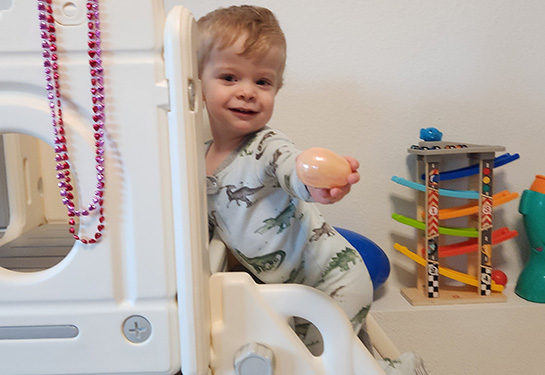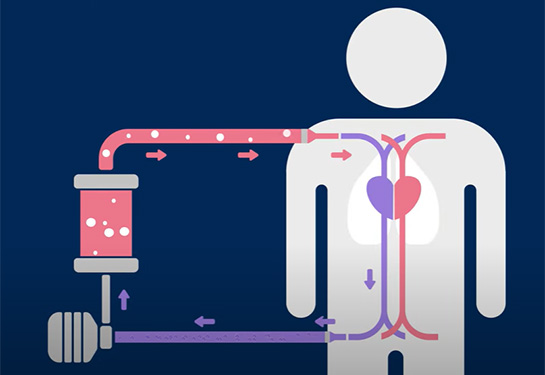New study finds excellent long-term outcomes with infant kidney transplants
A new UC Davis study finds improved outcomes for children with kidney disease who receive transplants as infants.
Infant kidney transplants comprise a small percentage of all pediatric kidney transplants in the U.S. Since January 1, 2000, the Organ Procurement and Transplantation Network (OPTN) database reports that fewer than half of 1% of all kidney transplants were infants.
Care providers often wait until an infant grows larger because of the technical challenges of performing this surgery on a small recipient. Most prefer to put infants on dialysis in the hopes of improving patient survival odds and limiting graft failure, which is when the body rejects the transplanted organ.
The study found that an infant kidney transplant has a higher graft failure rate in the first year compared to preteen and teen kidney transplants. Yet, the graft failure rates in infant kidney transplants are comparable or even lower after the first year. The research was published in the journal Transplantation Direct.
Our study demonstrates that infants with advanced chronic kidney disease, one of the most vulnerable of all patients, have much to benefit from receiving kidney transplants and can do so safely and with excellent long-term outcomes, in an experienced transplant center.”—Lavjay Butani
In addition, if kidney transplants take place earlier, the adverse effects of waste buildup due to kidney failure can be avoided. Those include impacts on neurodevelopmental outcomes and growth, as well as the dramatically higher risk of cardiovascular morbidity and mortality during dialysis in this vulnerable group.
“Our study demonstrates that infants with advanced chronic kidney disease, one of the most vulnerable of all kidney patients, have much to benefit from receiving kidney transplants and can do so safely and with excellent long-term outcomes, in an experienced transplant center,” said Lavjay Butani, senior author of the study and chief of pediatric nephrology at UC Davis Children’s Hospital. Daniel Tancredi, professor of pediatrics at UC Davis School of Medicine, was the lead author of the study.
Comparing infant with preteen and teen transplants
The study reviewed 2,696 pediatric kidney transplant patients who had their first kidney transplant between Jan. 1, 2000 and Dec. 31, 2015. Of these patients, 27 were infant recipients. The study excluded recipients who had a graft failure on the day of their transplant.
The study measured outcomes over time for three pediatric age categories, based on their age at the time of transplant: infants (1 year and younger), preteens (ages 1 to 11) and teenagers (ages 12 to 17).
The study found that the number of infant kidney transplants remained steady, ranging from zero in many years to a peak of five in 2006. There was no trend in the number of infant kidney transplants over time.
The infant recipients were more likely to be male, have structural causes of chronic kidney failure and have hypoalbuminemia, a low level of albumin protein in the blood.
The majority of infant and pediatric kidney recipients had experienced a period of dialysis before their transplant.
The highest graft failure rates were seen in the first year after transplant: 10.4% of infants compared with 3.8% of both preteens and teens. But these failure rates progressively declined over time. Five years after transplant, 16.4% of infants, 13.6% of preteens and 19.9% of teens experienced graft failures.
Kidney transplants performed in experienced centers
The study emphasizes that all kidney transplants should be performed in experienced centers, like UC Davis Children’s Hospital, to minimize risk. The study noted the data from the OPTN database revealed that kidney transplants were concentrated in a few geographic areas, reflecting the comfort level and expertise of just a few transplant teams to perform kidney transplants on infants.
“This study serves as an optimistic reminder for transplant centers with the technical expertise and experience in caring for this high-risk population not to delay performing transplants solely based on recipient size and age,” Butani said.






